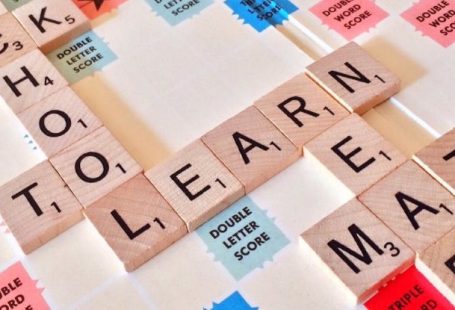In today’s interconnected world, the ability to speak more than one language has become increasingly valuable. Bilingual education, which involves teaching academic content in two languages, has gained recognition for its numerous benefits. Let’s delve into why bilingual education is important and how it can positively impact individuals and society as a whole.
**Enhances Cognitive Abilities**
One of the key reasons why bilingual education is important is its positive impact on cognitive abilities. Research has shown that individuals who are bilingual have better problem-solving skills, multitasking abilities, and enhanced cognitive flexibility compared to monolingual individuals. This is because speaking two languages requires the brain to constantly switch between languages, which exercises and strengthens cognitive functions. Bilingualism has also been linked to a reduced risk of cognitive decline in old age, highlighting the long-term benefits of being bilingual.
**Promotes Cultural Understanding**
Bilingual education plays a crucial role in promoting cultural understanding and appreciation. By learning a second language, individuals gain insight into different cultures, traditions, and ways of thinking. This exposure fosters empathy, tolerance, and respect for diversity, essential qualities in today’s globalized world. Bilingualism helps break down barriers between people of different linguistic and cultural backgrounds, paving the way for meaningful cross-cultural communication and collaboration.
**Improves Academic Performance**
Studies have consistently shown that bilingual education can lead to improved academic performance. Students who receive instruction in two languages often outperform their monolingual peers in subjects such as math, science, and reading. Bilingualism has been linked to enhanced literacy skills, critical thinking abilities, and overall academic achievement. By providing students with the opportunity to learn in two languages, bilingual education equips them with a competitive edge in the academic arena.
**Boosts Career Opportunities**
In today’s competitive job market, bilingualism is an asset that can open doors to a wide range of career opportunities. Many employers value candidates who are proficient in more than one language, as it demonstrates adaptability, communication skills, and a global mindset. Bilingual individuals are often sought after in industries such as international business, diplomacy, tourism, and translation. By investing in bilingual education, individuals can enhance their employability and expand their career prospects.
**Preserves Linguistic Diversity**
Bilingual education plays a crucial role in preserving linguistic diversity and heritage languages. In a world where many languages are at risk of extinction, bilingual education helps maintain and revitalize minority languages by providing opportunities for their use and promotion. By encouraging the preservation of diverse languages, bilingual education contributes to the enrichment of cultural heritage and identity. It also empowers communities to celebrate their linguistic roots and pass down their heritage languages to future generations.
**Fosters Social Integration**
Another important aspect of bilingual education is its role in fostering social integration and cohesion. By enabling individuals from different linguistic backgrounds to learn together, bilingual education promotes social inclusion and unity. It helps create a more inclusive and diverse society where individuals can communicate across language barriers and build connections based on mutual understanding. Bilingualism serves as a bridge that brings people together and promotes social harmony in multicultural communities.
**In Summary**
In conclusion, bilingual education is important for a multitude of reasons, ranging from cognitive benefits to cultural understanding, academic success, career opportunities, linguistic diversity preservation, and social integration. By embracing bilingual education, individuals can reap the numerous advantages that come with being proficient in more than one language. In a world that is increasingly interconnected, bilingualism is a valuable skill that not only benefits individuals but also contributes to a more diverse, inclusive, and harmonious society.





